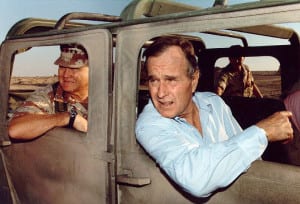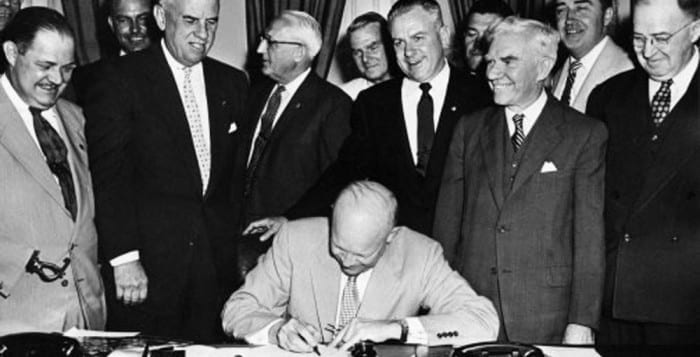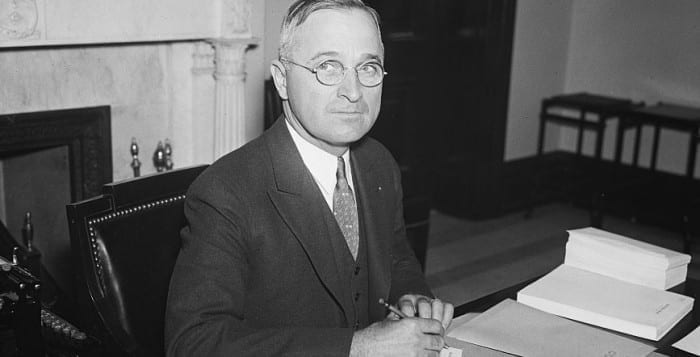By Rich Acritelli
Veterans Day is a time to remember all of our past, present and future members of the Armed Forces, but it was only about 60 years ago that President Dwight D. Eisenhower officially created the holiday we know today. Much happened on Nov. 11 even before it became a date of remembrance — there were significant losses and gains for our militaries during this month throughout history.
In the fall of 1776, Gen. George Washington was reeling from one loss after another that sent his army retreating from Long Island, Manhattan and across New Jersey toward Pennsylvania. It was a dark moment in the Revolutionary War for Washington to lose ground to the British, though he ultimately led the colonies to victory.

During the Civil War, in November 1863, Gen. Ulysses S. Grant was summoned to Chattanooga, Tenn., to prevent a total collapse of Union forces against the Confederacy. As Grant headed into the beleaguered city, he saw northern forces terribly hurt from the nearby Battle of Chickamauga. President Abraham Lincoln sent 20,000 soldiers from the Army of the Potomac to aid the defensive and later offensive efforts of Grant to defeat the South in that region, and while the Confederates had been on the verge of gaining a huge victory, Grant opened up the “Cracker Line” to Chattanooga, with additional men, supplies and horses to deter the enemy. Grant’s calm and cool presence helped secure a much-needed victory for a thankful Lincoln, who saw the battle as one of the greatest tests of survival for the Union.
Eisenhower had his own recollections of this date through his experience leading the Allied Forces during World War II. As a new commanding general, he planned the mid-November 1942 allied landings of Operation Torch against the Germans and the Vichy French in North Africa. From Morocco to Algeria, untested American military troops drove to destroy the war machine of Germany. The chainsmoking Eisenhower eagerly waited in Gibraltar for news that his men had achieved all of their objectives against the enemy. Two years later, in the fall of 1944, Eisenhower looked eastward as his forces operated on a broad front against the Nazis in France. By that time, his armies were nearing the German frontier with the belief that their bitter enemy was about to surrender. Little did he know that Hitler was planning a final December offensive, which would later be called the Battle of the Bulge, to drive a wedge against the Allies on the Western Front.
In 1990, President George H.W. Bush led the American efforts to destroy the strength of Saddam Hussein. That dictator had invaded Kuwait and was poised to attack Saudi Arabia, but the U.S. aimed to protect the Saudis through Desert Shield. Two weeks after Veterans Day, Bush was eating Thanksgiving dinner in the desert with the American military forces that eventually led the fighting into Iraq and Kuwait to defeat Hussein’s Republican Guard army.
Over the last 15 years, the United States has been in a constant state of warfare against aggressor and terrorist forces. From the deserts of Iraq to the mountains of Afghanistan, American service members from across the country have tirelessly fought against an enemy bent on hurting our way of life. Currently, this mission has expanded over the skies of Northern Iraq and Syria to limit the growing expansion and influence of ISIS.
Americans should not neglect the “Forgotten War” veterans of the Korean conflict who bitterly fought against the communists during that Cold War battle, nor the Vietnam War veterans who honorably served for a decade in that Southeast Asian country.
May we always remember and honor our veterans from every American conflict, on Veterans Day and throughout the year.
Rich Acritelli is a social studies teacher at Rocky Point High School and an adjunct professor of American history at Suffolk County Community College. He was a staff sergeant in the New York Air National Guard 106th Rescue Wing in Westhampton Beach.






